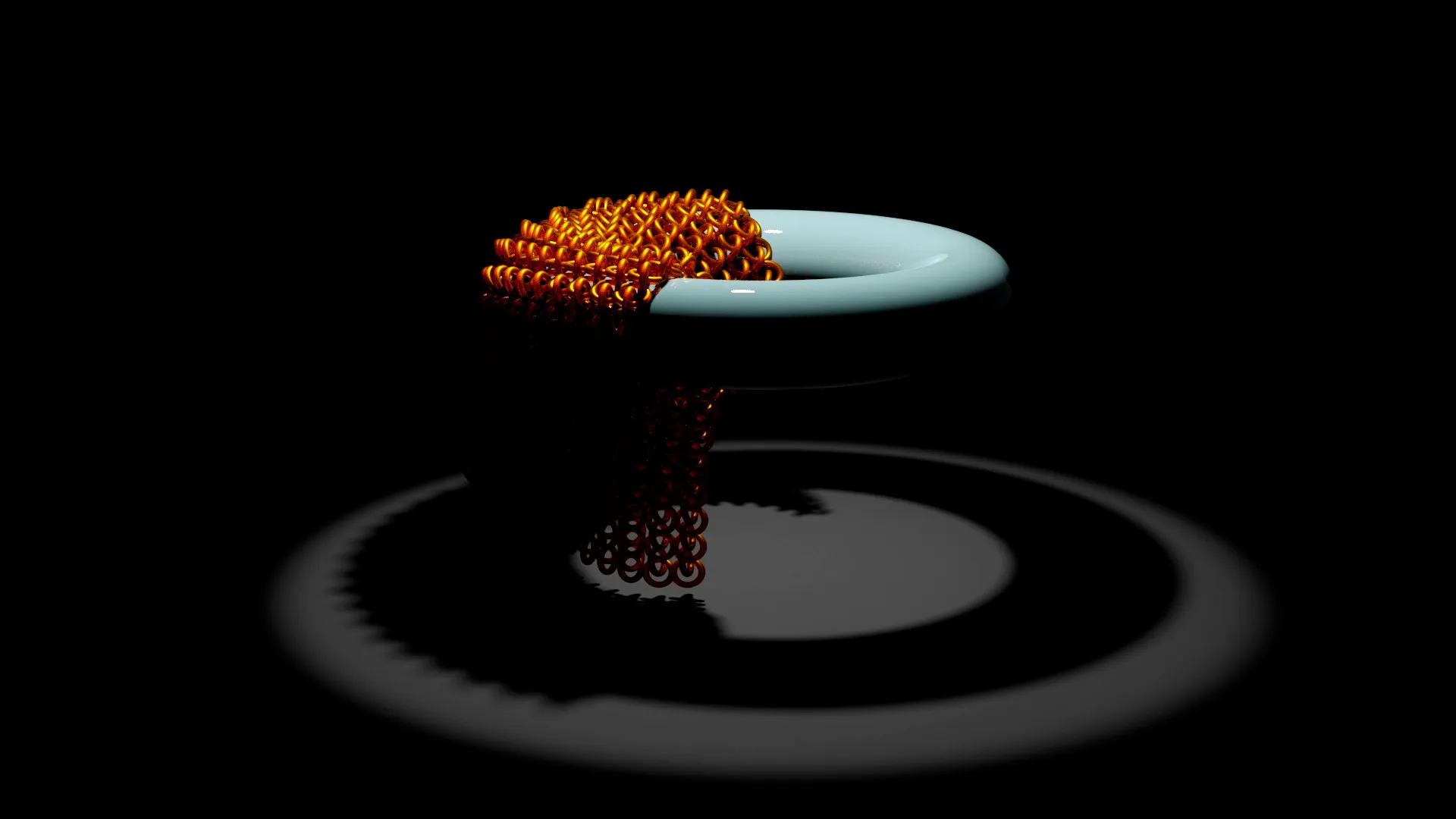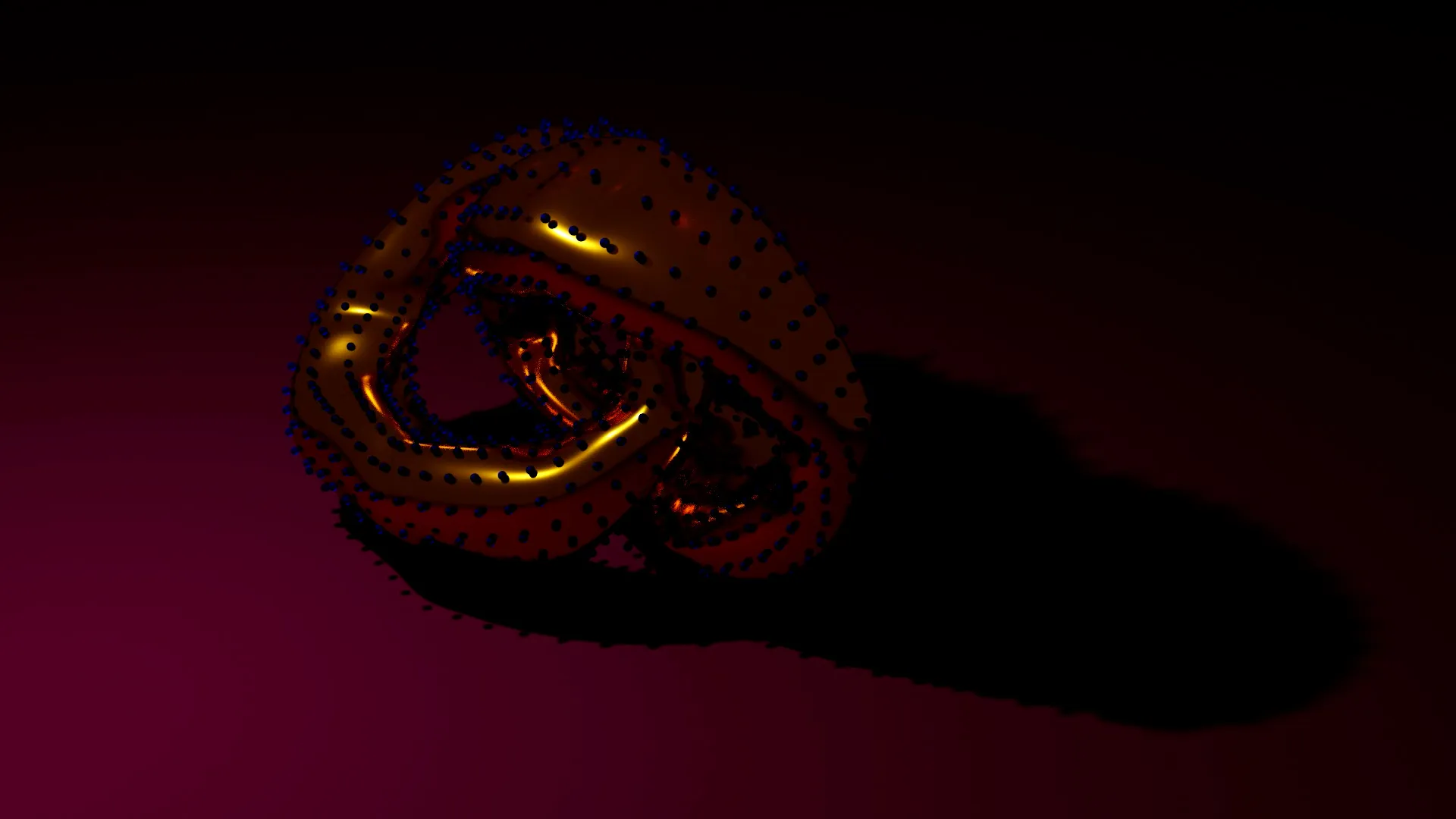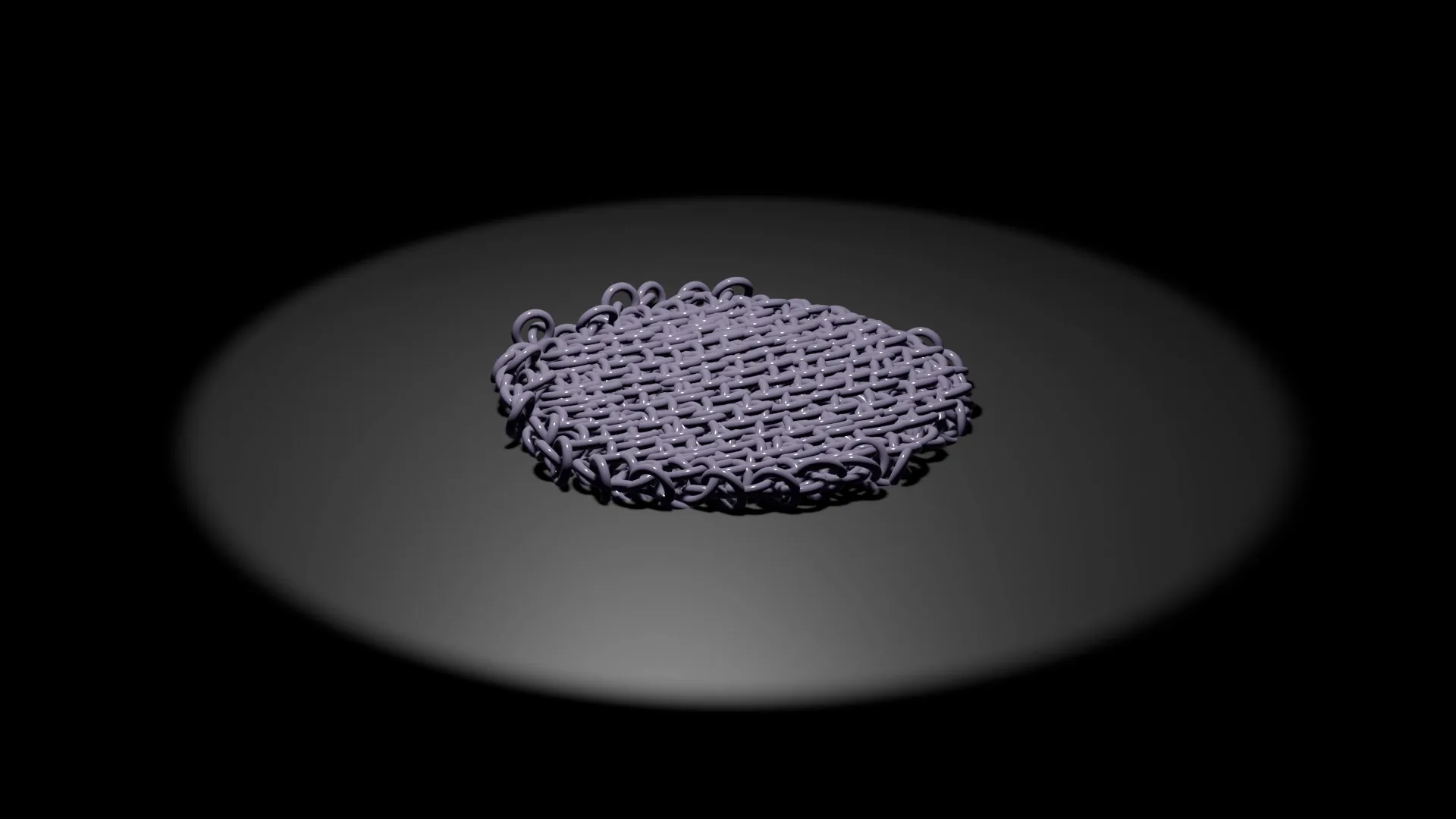Subscribe to get the latest on artists, exhibitions and more.
Unpatterned on the Impossible Creations of Adi Avidani

Leyla Fakhr: What did you think when you heard of an NFT exhibition competition? Did that sound strange to you? What are your views on curating NFTs?
Unpatterned: When we first came across the Verse NFT exhibition competition, we were intrigued and inspired by the possibility to explore the curatorial dimension behind an NFTs show. We realised how NFTs beyond their commercial value, offer new options and ways of curating in the digital world. Artists are constantly evolving their practices and are exploring new ideas and breaking boundaries, so the addition of NFTs in the art world have given them a new platform to expand their artistic practices. We are happy to be part of this world and we are interested in discovering artistic processes and doing more curatorial projects in the NFTs world.
Leyla Fakhr: Tell me more about your curatorial direction?
Unpatterned: We met during our MFA studies in the Curating programme at Goldsmiths University, and our first collaboration was a group exhibition Access in Deptford. Now we are working on various diverse projects - workshops in galleries, exhibitions and NFT projects. Our main interest is to find ways to form new relationships, facilitate access to art and connect people and communities through artistic and curatorial practices. Slow Curating sits at the core of our projects, as we focus on ideas of care, long processes of collaborations with artists and communities, mutuality and accessibility.
Leyla Fakhr: You are both graduating as curators from Goldsmiths this year, what does it mean to be a curator in an increasingly digital world?
Unpatterned: We started our masters in the middle of the pandemic, so the first year was almost entirely online. At first it was challenging to think of art and curatorial practices only in digital means, but it made us research and think more of new ways to curate in the digital world and opened up new possibilities for art. Due to the pandemic, a new awareness and understanding has grown in the art world towards the expansion of curatorial projects in the digital world in regard to inclusion and access to art.
Leyla Fakhr: How did you come across Adi Avidani's work? As an artist who works primarily in ceramics, how did you think it would translate into an NFT?
Unpatterned: Tamara was working on an exhibition about craft and art, and first met Avidani as a ceramic artist. It was really surprising to discover Avidani’s NFT work after seeing her ceramic practice, however, they are in a way completing each other. What is impossible to create in the physical world becomes a boundary that may be explored and broken in the digital with NFTs. As an artist she deals with human connections and interactions, and she uses the possibilities of the NFTs to expand the materialistic limits of the ceramic and allow a more democratic access to art.
Leyla Fakhr: Where do you think the future of art lies?
Unpatterned: We believe that the digital art world will continue to expand, not replacing the physical practices of art but in addition to it, as two sides of the same coin. We also think that we will see more and more community based artistic projects, both physically and digitally, and the digital world has the ability to form new types of communities and collectives and to empower and give access to underrepresented or marginalised communities.
Unpatterned: Why did you start working in NFTs? How is it different from your work in ceramic?
Adi Avidani: I started working in NFTs because I was working in a company (EpoLabs) that generated art through machine learning algorithms and I wanted to expand my practice and explore different ways of creating sculptures. After working there I taught myself how to design in 3D via Blender.
Through the usage of 3-D designs I could break the laws of physics and create different sculptures with different textures and movements. I wanted to bring my practice to the most contemporary phase.
Unpatterned: If and how does working in two different media affect your work?
Adi Avidani: It is very different from my studio base practice, however similar. My world of inspiration comes from shapes I see in nature and my studio work, after designing specific shapes with clay I then go and expand them in 3D. It also affects my work substantially in the sense that I have no limits to my ideas anymore. With the help of 3D, I believe we can bring to life every idea and design, and push ceramics to the edge of contemporary arts.
Adi Avidani is an artist based in London, who uniquely combines the craft of ceramics and the digital world of NFTs. In both of her very different practices, she explores human connections and our mutual relationships with the others in the world. The motives of chains and knots represent the essence of human relations with the self, one another, and our environments, and are the main theme in both her ceramic objects and NFTs artworks. The NFTs allow the ceramic artist to expand her exploration on the delicate human interactions as she breaks the limitations and constraints of the physical material world. In addition, she started creating NFTs from her desire to make art more accessible and approachable. Avidani was born and raised in Jerusalem which she defines as a city of Chaos. She is an award-winning artist based in London and she exhibited in several galleries and institutions including the Royal Academy, WAC, XII Florence Art Biennale (2021) and Sapling Gallery. With a background in special education (MEd in Special and Inclusive Education from UCL) and a strong belief in the invaluable impact of art on our daily lives, Adi founded the inclusive Cambridge Art Club where she teaches children to express their creativity and develop artistic skills. For the past years, Adi has been working in the Kiln Cambridge Studio and is a member at the exclusive ceramic studio in London, Studio Pottery London.
Unpatterned is a curatorial duo formed by London-based curators Irene Thiella and Tamara Admoni. After first meeting during their MFA studies in the Curating programme at Goldsmiths University, they started collaborating on diverse curatorial projects, including exhibitions, artistic events and workshops. The duo aspires to form new relationships, facilitate access to art and connect people and communities through artistic and curatorial practices. Slow Curating sits at the core of Unpatterned, as their main curatorial practices focus on ideas of care, long processes of collaborations with artists and communities, mutuality and accessibility. Tamara deals mainly with the ways we react to and are affected by aesthetic experiences (both socially and politically); expanding and combining art with varied cultural, philosophical, visual, and creative fields. Irene’s research focuses on socially-engaged art and practices, imagining a more holistic form of social practice that tries to answer the needs, desires and intentions of a community.
Leyla Fakhr is Head of Programming at Verse. After working at the Tate for 8 years, she worked as an independent curator and producer across various projects internationally. During her time at Tate she was part of the acquisition team and worked on a number of collection displays and exhibitions. She is the editor of the monograph on artist Reza Aramesh and producer of documentary ‘Monir’, a film on the life and work of the artist Monir Shahroudy Farmanfarmaian. She was a curator at Green Cardamom (2006-2009), where she worked on numerous exhibitions with artists predominantly from South Asia and the Middle East creating projects internationally.
Unpatterned
Unpatterned is a curatorial duo formed by London-based curators Irene Thiella and Tamara Admoni. After first meeting during their MFA studies in the Curating programme at Goldsmiths University, they started collaborating on diverse curatorial projects, including exhibitions, artistic events and workshops. The duo aspires to form new relationships, facilitate access to art and connect people and...
Leyla Fakhr
Leyla Fakhr is Artistic Director at Verse. After working at the Tate for 8 years, she worked as an independent curator and producer across various projects internationally. During her time at Tate she was part of the acquisition team and worked on a number of collection displays including John Akomfrah, ‘The Unfinished Conversation’ and ‘Migrations, Journeys into British Art’.
She is the editor...
Adi Avidani
Adi Avidani is an Israeli artist and art teacher based in London UK. Avidani combines the craft of ceramics and the digital world of NFTs.
In both of her very different practices, she explores human connections and our mutual relationships with the others in the world. The motives of chains and knots represent the essence of human relations with the self, one another, and our environments, and...



